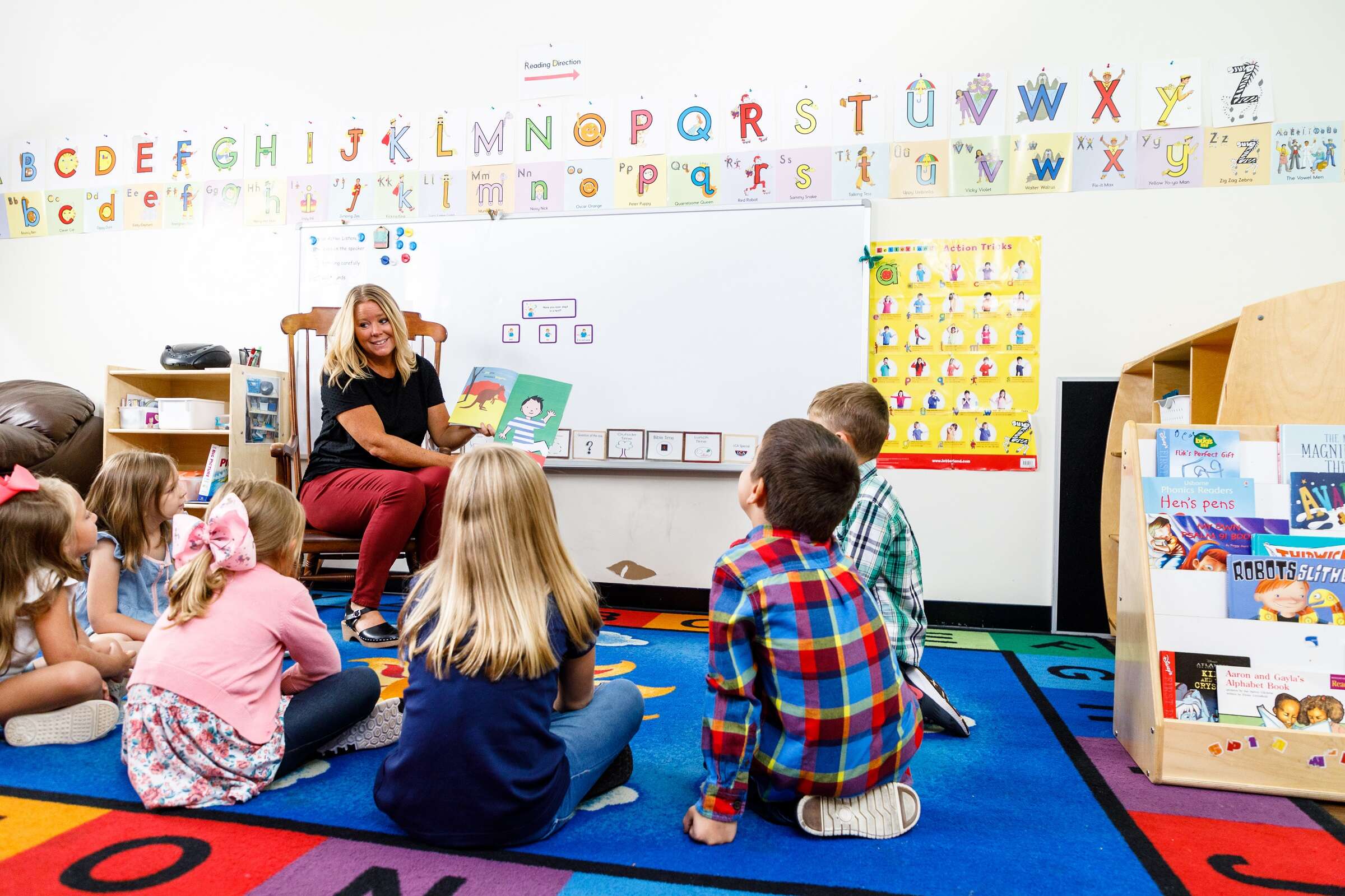Early Childhood Education is a major that focuses on the education and development of children from birth to eight years old. It equips students with the knowledge and skills to teach and support young children in various educational settings.
Introducing the next generation to the world of learning is a noble and rewarding profession, and if you have a passion for working with young children, Early Childhood Education might be the perfect major for you. In this field, you will learn how to create engaging and age-appropriate lesson plans, foster positive relationships with children and their families, and utilize effective teaching strategies.
Additionally, you will gain insights into child psychology, developmentally appropriate practices, and classroom management techniques. As an Early Childhood Education major, you will have the opportunity to make a significant impact on the lives of young learners and shape their educational experiences during their crucial early years.
Understanding Early Childhood Education As A Major
Early Childhood Education is a widely recognized and important major aimed at preparing individuals to work with young children. This major focuses on the educational and developmental needs of children from birth to the age of eight. Early Childhood Education emphasizes the significance of providing a solid foundation for a child’s future academic and personal growth.
Early Childhood Education as a major equips aspiring educators with the knowledge and skills required to create engaging and effective learning environments for young children. It covers a wide range of subjects including child psychology, curriculum development, child guidance, and teaching methodologies specifically designed for early childhood learners.
The importance of Early Childhood Education cannot be overstated. Research indicates that quality early education has a significant impact on a child’s cognitive development, social skills, and long-term academic achievements. In addition, early childhood educators play a crucial role in identifying and addressing any learning or developmental challenges a child may face at an early stage, thereby promoting inclusive education.
In conclusion, Early Childhood Education is a vital major that equips individuals with the knowledge and skills to shape the future of young children, making it a rewarding and fulfilling career choice.

Credit: www.liberty.edu
Popular Majors In Early Childhood Education
| Popular Majors in Early Childhood Education |
|---|
| Bachelor’s Degree in Early Childhood Education |
Obtaining a bachelor’s degree in early childhood education is a popular choice for individuals interested in working with young children. This degree program provides a comprehensive understanding of child development, teaching methods, and curriculum design. Students learn how to create engaging and educational experiences for children from birth through age 8. Graduates with a bachelor’s degree in early childhood education can pursue a variety of career paths, including becoming a preschool teacher, kindergarten teacher, or early intervention specialist.
Another option for individuals interested in early childhood education is an associate’s degree. An associate’s degree in early childhood education typically takes two years to complete and provides students with foundational knowledge in child development and pedagogy. This degree is a good choice for those seeking to work as teacher’s assistants, childcare workers, or in other entry-level positions in the field.
For individuals looking to advance their careers in early childhood education, a master’s degree is a common choice. A master’s degree in early childhood education offers a deeper understanding of advanced teaching strategies, research methods, and leadership skills. Graduates with a master’s degree can pursue positions such as instructional coordinators, curriculum developers, or early childhood education administrators.
Exploring Specializations Within Early Childhood Education
| Exploring Specializations within Early Childhood Education |
Early childhood education is a broad field that offers various specializations for those interested in working with young children. One specialization is Special Education in Early Childhood, where educators are trained to support children with special needs and disabilities. They learn strategies to create inclusive environments and individualized education plans to meet each child’s unique requirements.
Another specialization within early childhood education is Curriculum Development and Instructional Design. Professionals in this field focus on designing developmentally appropriate curricula and implementing effective teaching methods to enhance children’s learning experiences.
The field of early childhood education also offers opportunities in Administration and Leadership. This specialization prepares professionals to assume administrative roles in educational institutions or organizations. These individuals are equipped with the skills necessary to manage programs, oversee staff, and ensure compliance with regulations.
Career Opportunities In Early Childhood Education
Early Childhood Education is a field that offers a wide range of career opportunities. Graduates in this major can explore various roles depending on their interests and skills.
One popular career path is becoming a Preschool Teacher. Preschool teachers play a vital role in facilitating early childhood development by providing a nurturing and educational environment for young children.
An alternative career option is to become an Early Intervention Specialist. These professionals work with children who have developmental delays or disabilities, helping them reach their full potential through specialized interventions and therapies.
Another potential role in Early Childhood Education is that of a Childcare Center Director. As a director, you would oversee daily operations, ensure compliance with regulations, and create a safe and enriching environment for children under your care.
Furthermore, some individuals may choose to become Early Childhood Education Consultants. These experts offer guidance and support to educators, parents, schools, and organizations, helping them develop and implement effective strategies for early childhood education.
In summary, Early Childhood Education opens doors to several rewarding career opportunities, such as being a Preschool Teacher, Early Intervention Specialist, Childcare Center Director, or Early Childhood Education Consultant.
Required Skills And Knowledge In Early Childhood Education
In the field of Early Childhood Education, professionals need to possess a range of required skills and knowledge to effectively support the development of young children. Developmentally Appropriate Practice is a key aspect, emphasizing the importance of tailoring educational experiences to match the unique needs and abilities of each child. This approach promotes learning through play, hands-on activities, and individualized instruction. Effective classroom management techniques are also crucial, enabling educators to create a positive and structured learning environment. By establishing clear expectations, implementing consistent routines, and fostering a sense of community, teachers can maximize engagement and minimize disruptions. Understanding child behavior and developmental psychology is another fundamental skill, allowing educators to recognize and address the various factors that influence children’s behaviors and emotions.
Advantages And Challenges Of Pursuing A Degree In Early Childhood Education
An early childhood education degree offers several advantages for individuals looking to pursue a career in this field. Firstly, it provides opportunities for personal and professional growth. With a degree in early childhood education, individuals gain the knowledge and skills necessary to work effectively with young children, helping them develop their cognitive, social, and emotional skills. Moreover, a degree in this field opens doors to a variety of career paths, such as becoming a preschool teacher, daycare center director, or early intervention specialist.
However, pursuing a degree in early childhood education also comes with its own set of challenges and considerations. One major challenge is the emotional demands of working with young children. It can be emotionally taxing to witness the struggles and difficulties some children face on a daily basis. Additionally, the compensation for early childhood educators is often lower than in other professions, which may be a financial challenge for some individuals.
| Advantages of a Career in Early Childhood Education | Challenges and Considerations in Early Childhood Education |
|---|---|
| – Personal and professional growth | – Emotional demands of working with young children |
| – Opportunities to make a positive impact on children’s lives | – Lower compensation compared to other professions |
| – Various career paths available | – Workload can be demanding |
Accreditation And Licensure In Early Childhood Education
Accreditation and Licensure in Early Childhood Education
Early Childhood Education is an important field for those interested in working with young children. Accreditation is a vital consideration when choosing an Early Childhood Education program, as it ensures that the program meets certain quality standards. Accredited programs have gone through a rigorous review process by a recognized accrediting body. This review considers factors such as curriculum, facilities, faculty qualifications, and student outcomes. When selecting an ECE program, it is crucial to look for accreditation from reputable organizations, such as the National Association for the Education of Young Children (NAEYC).
In addition to accreditation, aspiring early childhood educators must also be aware of state licensure and certification requirements. Each state has its own unique requirements, which typically include completing an approved ECE program and passing a licensing exam. Some states may also require additional qualifications, such as a certain number of supervised field experience hours. It is important for individuals to research and understand the specific requirements in their state before pursuing a career in early childhood education.
Professional Organizations And Resources In Early Childhood Education
Professional organizations and resources play a crucial role in advancing the field of early childhood education. The National Association for the Education of Young Children (NAEYC) serves as a premier organization for early childhood educators, offering research-based resources, professional development opportunities, and advocacy efforts. Additionally, the Association for Childhood Education International (ACEI) provides a platform for educators to exchange ideas, collaborate, and stay updated on the latest trends in the field.
To stay informed and gain valuable insights, early childhood educators can rely on various journals and publications in the field. Some prominent journals include Early Childhood Research Quarterly, Journal of Early Childhood Teacher Education, and Early Childhood Education Journal. These publications offer scholarly articles, research findings, and practical strategies to enhance teaching practices.
By becoming members of professional organizations, such as NAEYC and ACEI, and regularly accessing early childhood education journals and publications, educators can stay connected, informed, and empowered to provide high-quality care and education to young children.
Frequently Asked Questions Of What Major Is Early Childhood Education
What Degree Is Best For Early Childhood Education?
A degree in early childhood education is the best choice for individuals interested in working with young children. It provides the necessary knowledge and skills to effectively support their development and learning. Pursuing this degree opens doors to various career opportunities in preschools, daycare centers, and other educational settings.
What Major Is Early Childhood Education?
Early Childhood Education is a major that focuses on the development and education of young children, typically from birth to age eight. It covers topics such as child psychology, teaching methods, curriculum development, and child growth and development.
What Can You Do With A Degree In Early Childhood Education?
With a degree in Early Childhood Education, you can pursue various career paths. You can work as a preschool teacher, kindergarten teacher, daycare center director, nanny, or child development specialist. You can also continue your education and become an elementary school teacher or a child psychologist.
How Long Does It Take To Complete A Degree In Early Childhood Education?
The duration of a degree in Early Childhood Education depends on the program and the level of degree. Generally, it takes around two to four years to complete an associate or bachelor’s degree in this field. Some universities also offer accelerated programs that can be completed in less time.
Conclusion
Pursuing a major in Early Childhood Education can open doors to a fulfilling and rewarding career. With a strong foundation in child development and teaching strategies, graduates are well-equipped to make a positive impact on the lives of young children.
By understanding the importance of early intervention and fostering a supportive learning environment, educators can shape and nurture the future leaders of our society. So, if you have a passion for helping children thrive and grow, consider choosing Early Childhood Education as your major.







